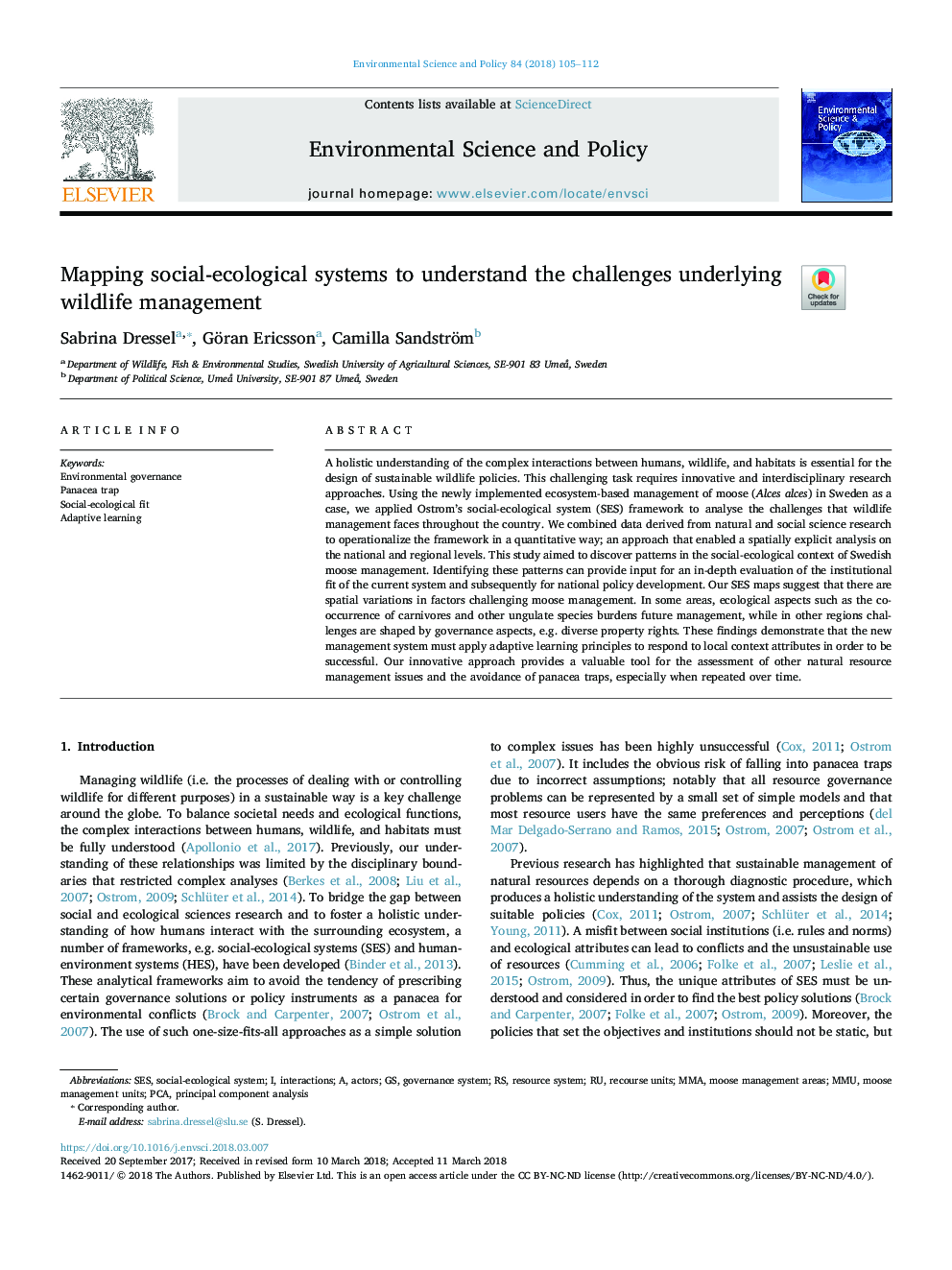| Article ID | Journal | Published Year | Pages | File Type |
|---|---|---|---|---|
| 7466056 | Environmental Science & Policy | 2018 | 8 Pages |
Abstract
A holistic understanding of the complex interactions between humans, wildlife, and habitats is essential for the design of sustainable wildlife policies. This challenging task requires innovative and interdisciplinary research approaches. Using the newly implemented ecosystem-based management of moose (Alces alces) in Sweden as a case, we applied Ostrom's social-ecological system (SES) framework to analyse the challenges that wildlife management faces throughout the country. We combined data derived from natural and social science research to operationalize the framework in a quantitative way; an approach that enabled a spatially explicit analysis on the national and regional levels. This study aimed to discover patterns in the social-ecological context of Swedish moose management. Identifying these patterns can provide input for an in-depth evaluation of the institutional fit of the current system and subsequently for national policy development. Our SES maps suggest that there are spatial variations in factors challenging moose management. In some areas, ecological aspects such as the co-occurrence of carnivores and other ungulate species burdens future management, while in other regions challenges are shaped by governance aspects, e.g. diverse property rights. These findings demonstrate that the new management system must apply adaptive learning principles to respond to local context attributes in order to be successful. Our innovative approach provides a valuable tool for the assessment of other natural resource management issues and the avoidance of panacea traps, especially when repeated over time.
Keywords
Related Topics
Physical Sciences and Engineering
Energy
Renewable Energy, Sustainability and the Environment
Authors
Sabrina Dressel, Göran Ericsson, Camilla Sandström,
